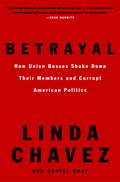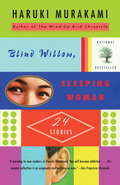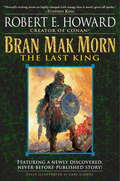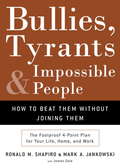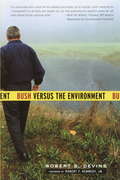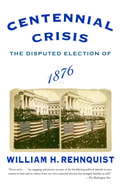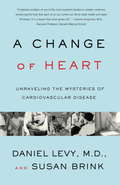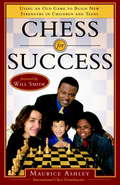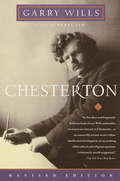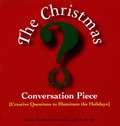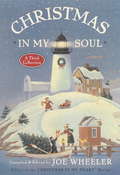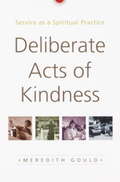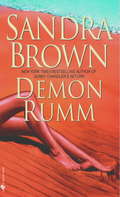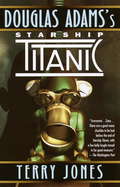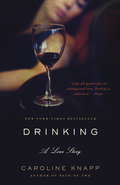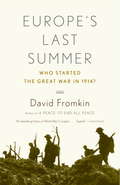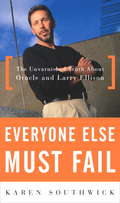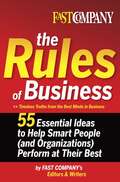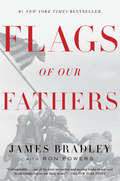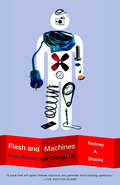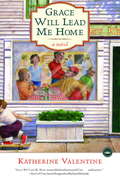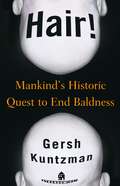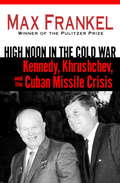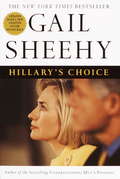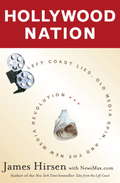- Table View
- List View
Betrayal
by Linda Chavez Daniel Gray“Simply put, the leftist labor unions have the Democrats in their pockets. And we’re all paying the price. ” Linda Chavez, President George W. Bush’s original choice for Secretary of Labor and a former union official, is one of the foremost authorities on America’s labor unions. Now, in the explosive new bookBetrayal, she and fellow union expert Daniel Gray expose the corrupt bargain between the labor movement and the Democratic Party. Committed to a far-left political agenda—and to enhancing their own power—union bosses funnel at least half a billion dollars into Democratic coffers every year. And they do it, illegally, by using dues money that workers are forced to pay as a condition of their employment—dues money that each year brings the unions $17 billion, all of it tax-free. What do labor bosses get in return? The power to call the shots in Democratic campaigns and on party policy, extraordinary influence at all levels of government, billions of dollars in taxpayer-funded federal grants, and special legal privileges that leave them free to act as they please, no matter the consequences for the American people. The cycle of corruption is seemingly endless. Chavez and Gray name names, exposing the many politicians who are in Big Labor’s pocket—including the leading lights of the Democratic Party. Betrayal also reveals: • Big Labor’s all-out efforts in the 2004 election, including how just one local union has launched a $35-million campaign to unseat President Bush • How corrupt union officials use members’ hard-earned money to fund lavish lifestyles—and how their Democratic supporters let them get away with it • How unions flout the law by failing to report any of their political spending to the IRS • How a government report uncovered the Democrats’ sellout to Big Labor—but how the unions and the Democrats sued to keep the report from going public • How the U. S. government lets unions practice legalized terrorism against American citizens • How public-employee unions extort concessions from the government and put Americans at risk by refusing to provide vital services like policing and firefighting • How Americans now live under a system of legal apartheid—one set of rules for labor bosses, another for the rest of us All of us foot the bill for this corrupt system. Now it’s up to us to do something about it.
Blind Willow, Sleeping Woman (Vintage International)
by Haruki MurakamiFrom the surreal to the mundane, twenty-four stories that &“show Murukami at his dynamic, organic best&” (Los Angeles Times Book Review). "A warning to new readers of Haruki Murakami: You will become addicted.... His newest collection is as enigmatic and sublime as ever." —San Francisco ChronicleHere are animated crows, a criminal monkey, and an ice man, as well as the dreams that shape us and the things we might wish for. From the surreal to the mundane, these stories exhibit Murakami&’s ability to transform the full range of human experience in ways that are instructive, surprising, and entertaining.
Bran Mak Morn
by Robert E. HowardFrom Robert E. Howard’s fertile imagination sprang some of fiction’s greatest heroes, including Conan the Cimmerian, King Kull, and Solomon Kane. But of all Howard’s characters, none embodied his creator’s brooding temperament more than Bran Mak Morn, the last king of a doomed race. In ages past, the Picts ruled all of Europe. But the descendants of those proud conquerors have sunk into barbarism . . . all save one, Bran Mak Morn, whose bloodline remains unbroken. Threatened by the Celts and the Romans, the Pictish tribes rally under his banner to fight for their very survival, while Bran fights to restore the glory of his race. Lavishly illustrated by award-winning artist Gary Gianni, this collection gathers together all of Howard’s published stories and poems featuring Bran Mak Morn–including the eerie masterpiece “Worms of the Earth” and “Kings of the Night,” in which sorcery summons Kull the conqueror from out of the depths of time to stand with Bran against the Roman invaders. Also included are previously unpublished stories and fragments, reproductions of manuscripts bearing Howard’s handwritten revisions, and much, much more. Special Bonus: a newly discovered adventure by Howard, presented here for the very first time. From the Trade Paperback edition.
Bullies, Tyrants, and Impossible People
by Ronald M. Shapiro Mark A. JankowskiThe impossible people who make life’s journey so difficult are everywhere—at the office, in restaurants, on airplanes, living next door, members of your own family. They’re . . . • your “nothing is ever good enough” boss • the “no price is ever low enough” client • the next-door neighbor who redefines the meaning of paranoia • the maître d’ who looks through you as if you don’t exist • the father-in-law who you know is always thinking about how much better a life his Janey or Joey would have if only married to someone other than you Ron Shapiro and Mark Jankowski give you a simple and highly effective 4-point plan for dealing with all of them and more—N. I. C. E. Their system shows you how to neutralize your emotions so you don’t just react but act purposefully and wisely. It enables you to identify the type of bully, tyrant, or impossible person you’re facing—the situationally difficult (something has happened that turns an otherwise reasonable person into a temporary terror); the strategically difficult (she has empirical evidence that being difficult is a strategy that gets results); or simply difficult (being difficult is his 24/7 M. O. ). Then you’ll learn how to shape the outcome by controlling the encounter and, finally, how to get “unstuck” by exploring your options. Using colorful stories from all walks of life— “He called me the scum of the earth and it went downhill from there,” “First, lock all your vendors in a small room,” and “The boss from hell”—the authors bring their lessons to life, from business life to family life.
Bush Versus the Environment
by Robert S. DevineSince becoming president, George W. Bush has walked away from the Kyoto Protocol, pushed for oil drilling in the Arctic National Wildlife Refuge, undermined protections for endangered species and wilderness, and retreated from his campaign pledge to regulate carbon dioxide. But the president’s agenda reaches deeper than these well-known policies. InBush Versus the Environment, Robert Devine shows how the White House is quietly undermining the entire system of environmental safeguards that has developed over the past thirty years. The administration's tactics include: -Encouraging lawsuits against the federal government that challenge existing environmental laws, and then feebly defending the cases in court. -Ignoring science that doesn’t support the president's goals, and pressuring government scientists to produce the results the administration wants. -Using fuzzy math to overestimate the costs and underestimate the benefits of regulations that protect human health and the environment, which can lead to the elimination of much-needed rules. These are just a few of the administration’s strategies, which are being pursued beneath the radar of a public that overwhelmingly supports environmental protections. Bush Versus the Environmentis a compelling and important look at one of the most important issues facing America today, one that will have consequences that last long after Bush has left office. From the Trade Paperback edition.
Centennial Crisis
by William H. RehnquistNear midnight on Election Day in November 1876, the returns coming into Republican National headquarters signaled a victory for the Democratic presidential candidate, Samuel J. Tilden. But alert Republican leaders saw that if all the states still doubtful or disputed went for their candidate, Rutherford B. Hayes would be elected. Word was sent out to four southern states that their returns were crucial for a Hayes victory. Thus Chief Justice William Rehnquist begins this remarkable account of one of American's greatest political dramas, a crisis that was not resolved for nearly four months, on March 2, 1877, only two days before Inauguration Day. In his gripping story, Rehnquist tells how each party maneuvered to buy votes in the southern states, how the country slid into Congressional, judicial and public turmoil, and how the creation in January of an Electoral Commission (comprised of five Democrats, five Republicans and five Supreme Court justices) was opposed by both candidates. When that body's deciding vote was cast by Justice Joseph Bradley, public outcry reached such a fever pitch that the presidential swearing-in had to be held on a Sunday in near secrecry. Reaching beyond the history of a contentious election, the Chief Justice describes the political climate and economy of America in the 1870's, packing his narrative with biographical sketches of the central participants and opening a window on events in that decade that have long been overlooked. In a compelling epilogue we learn the occasions when Presidents, ranging from George Washington to Lyndon Johnson, have asked Supreme Court justices to arbitrate disputes, settle treaties or serve on investigating commissions. Almost always the justices were berated and attacked for their decisions. Would it be better for them to have refused the president’s request? The Chief Justice has some surprising answers.
Change of Heart
by Daniel LevyA Change of Heartis a detailed account of the revolutionary Framingham Heart study -- which, over the years, has provided conclusive evidence that cardiovascular disease is largely the result of measurable and modifiable risk factors. First begun in 1948, not long after Franklin Delano Roosevelt succumbed to a massive stroke, the study of over 5,000 citizens of Framingham, Massachusetts, changed the course of medical history. The lessons learned in Framingham allow each of us to control our risk of heart disease and stroke, two of the leading causes of death in the United States. Here is a clear-eyed and intriguing assessment of the achievements of this study and of its continuing importance to our health today.
Chess for Success
by Maurice Ashley International Chess GrandmasterMaurice Ashley immigrated to New York from Jamaica at the age of twelve, only to be confronted with the harsh realities of urban life. But he found his inspiration for a better life after stumbling upon a chess book and becoming hypnotized by the game. He would eventually break the chess world's color lines by becoming an International Grandmaster in 1999. Ashley realized that chess strategies could be used as an educational tool to help children avoid the pitfalls often associated with growing up. In this book, he serves up compelling anecdotes about how chess has positively affected young players. He also offers tips on technique, how to make the game fun for children of all ages and levels, and how to overcome the myth that chess isn't cool. Through his guidance, readers will understand how chess strategies can improve a child's mental agility, creativity, and problem-solving skills. Chess for Successis a much-anticipated resource for parents, teachers, counselors, youth workers, and chess lovers.
Chesterton
by Garry Wills"Part of a literary circle that included H. G. Wells, George Bernard Shaw, Hillaire Belloc, and Max Beerbohm, G. K. Chesterton (1874-1936) wrote essays of social criticism for contemporary journals, literary criticism (including notable books on Browning, Dickens, and Shaw), and works of theology and religious argument, but may have been best known for his Father Brown mysteries. Chesterton's interest in Catholic Christianity, first expressed in Orthodoxy, led to his conversion from Anglicanism to Roman Catholicism in 1922. His classic Saint Francis of Assisi and the equally acclaimed Saint Thomas Aquinas confirmed his reputation as a writer with the rare ability to simultaneously entertain, inform, and enlighten readers. This revised edition of Garry Wills's finely crafted biography includes updates to the text and a new Introduction by the author. "--BOOK JACKET. Title Summary field provided by Blackwell North America, Inc. All Rights Reserved
Christmas Conversation Piece
by Bret Nicholaus Paul LowrieWhat one Christmas tradition would you never want to give up? If you could spend Christmas anywhere in the world, where would you most want to be? If you could have visited the Christ child just as the Three Kings did, what would you have brought as a gift? You've been chosen to host a sensational Christmas celebration on TV: What three guests would you choose to make it the best Christmas special ever? The Christmas Conversation Pieceoffers these and many other questions to pose and ponder during a season of both deep reflection and unabashed merriment. This charming volume--the perfect stocking stuffer--will provide you, your family, and your friends with twelve days of surprising and amusing Yuletide questions. Who would you most like to meet under the mistletoe? Your answer just may change by Christmas Eve!
Christmas in My Soul
by Joe WheelerFrom the man who compiled the cherished Christmas In My Heart series comes Christmas In My Soul -- the perfect gift book for the holiday season.
Deliberate Acts of Kindness
by Meredith GouldAn indispensable guide to the spiritual and the practical aspects of devoting one’s time and energies to the service of others. Deliberate Acts of Kindnessis for people who are ready to supplement"random acts of kindness" with intentional acts of generosity, decency, and integrity. More than simply a handbook for volunteers, it explores the significance of service as an expression of spirituality and the commitment to something greater than oneself. Meredith Gould guides readers through their journeys, from recognizing when they are ready to answer the call to service to finding the right place to donate their time and talents. She offers invaluable advice on discovering the types of work that best suit their personalities and the areas in which they can make the greatest contributions. There is helpful information on how to get involved, as well as sensible suggestions about what to do when things go wrong in a service situation. An easy-to-read mix of tips, quotations, reflections, and short narrative passages,Deliberate Acts of Kindnesspresents a comprehensive, honest look at what service is like on a day-to-day basis. Its insights will help new volunteers and veterans alike negotiate the practical difficulties that sometimes arise and achieve the spiritual maturity that comes from answering the call to service. From the Trade Paperback edition.
Demon Rumm
by Sandra BrownIt was the publicity stunt from hell as far as Kirsten Rumm was concerned. She may have been writing the book about her late husband, aeronautical daredevil Demon Rumm, but she didn’t see the need to play host to the arrogant bad-boy actor starring in the film version’s title role. Still, for the good of the project, Kirsten agreed to share her beachfront home with the impossibly sexy screen idol. Any other woman would do anything to be in her sandals, but Kirsten wasn’t falling for Rylan North, even if he did play his role of male lead to perfection. His down-home charm, his gentleness and virile charisma, might be seducing her in every sense of the word, but he was an actor, after all. Seducing an audience was his job. Rylan could have any woman he wanted. So why was he so desperately pretending to want her? From the moment he saw her, Rylan North knew that Kirsten Rumm was the woman he’d been waiting all his life to cast as the star in his real-life love story. What did it matter if he was every woman’s fantasy if he couldn’t get Kirsten to so much as glance his way? He’d caught the look of past hurt behind her sky-blue eyes–a dark secret that shadowed the sparkle. Rylan was determined to find out what tragedy held this passionate woman back from a second chance at love even if it cost him his reputation, his career, and his life. But first he’d have to get Kirsten to act on her instincts . . . and to trust the flesh-and-blood man behind the fantasy.
Douglas Adams's Starship Titanic
by Terry JonesIn this thoroughly satisfying and completely disorienting novel based on a story line by Douglas Adams (author of The Hitchhiker's Guide to the Galaxy), Terry Jones recounts an unforgettable tale of intergalactic travel and mishap. The saga of "the ship that cannot possibly go wrong" sparkles with wit, danger, and confusion that will keep readers guessing which reality they are in and how, on earth, to find their way out again.At the center of the galaxy, a vast, unknown civilization is preparing for an event of epic proportions: the launching of the greatest, most gorgeous, most technologically advanced Starship ever built-the Starship Titanic. An earthling would see it as a mixture of the Chrysler Building, the tomb of Tutankhamen, and Venice. But less provincial onlookers would recognize it as the design of Leovinus, the galaxy's most renowned architect. He is an old man now, and the creation of the Starship Titanic is the pinnacle achievement of his twenty-year career. The night before the launch, Leovinus is prowling around the ship having a last little look. With mounting alarm he begins to find things are not right: unfinished workmanship, cybersystems not working correctly, robots colliding with doors. How could this have happened? And how could this have happened without his knowing?Something somewhere is terribly wrong.On the following day, in an artificial event staged for the media, the Starship Titanic will leave its construction dock under autopilot and, a few days later, make its way to the terminal to pick up passengers for its maiden voyage. Although the ship will be deserted during its very first flight, it is nevertheless a major event, watched by all the galaxy's media.Hugely, magnificently, the fabulous ship eases its way forward from the construction dock, picks up speed, sways a bit, wobbles a bit, veers wildly, and just before it can do massive damage to everything around it, appears to undergo SMEF (Spontaneous Massive Existence Failure).In just ten seconds, the whole, stupendous enterprise is over. And our story has just begun.Somehow three earthlings, one Blerontin journalist, a semideranged parrot, and a shipful of disoriented robots must overcome their differences. It's the only way to save the Starship Titanic ("The Ship That Cannot Possibly Go Wrong") from certain destruction and rescue the economy of an entire planet-not to mention to survive the latest threat, an attack by a swarm of hostile shipbuilders. . . .From the Hardcover edition.
Drinking: A Love Story
by Caroline KnappFifteen million Americans a year are plagued with alcoholism. Five million of them are women. Many of them, like Caroline Knapp, started in their early teens and began to use alcohol as "liquid armor," a way to protect themselves against the difficult realities of life. In this extraordinarily candid and revealing memoir, Knapp offers important insights not only about alcoholism, but about life itself and how we learn to cope with it.
Europe's Last Summer: Who Started the Great War in 1914?
by David FromkinThe Great War not only destroyed the lives of over twenty million soldiers and civilians, it also ushered in a century of huge political and social upheaval, led directly to the Second World War and altered for ever the mechanisms of governments. And yet its causes, both long term and immediate, have continued to be shrouded in mystery. In EUROPE'S LAST SUMMER, David Fromkin reveals a new pattern in the happenings of that fateful July and August, which leads in unexpected directions. Rather than one war, starting with the assassination of Archduke Franz Ferdinand, he sees two conflicts, related but not inseparably linked, whose management drew Europe and the world into what The Economist described as early as 1914 as 'perhaps the greatest tragedy in human history'.
Everyone Else Must Fail: The Unvarnished Truth About Oracle and Larry Ellison
by Karen SouthwickKaren Southwick’s unauthorized account provides the full story of Larry Ellison’s brilliant, controversial career. Ellison’s drive and fierce ambition created Oracle out of the dust and built it into one of America’s great technology companies, but his unpredictable management style keeps it constantly on the edge of both success and disaster. The hostile bid for PeopleSoft is just the most recent example. With one clever strategic move, Larry Ellison threw much of the business software field into play.The saying “It’s not enough that I succeed, everyone else must fail” has been so often used by or associated with Ellison that most people think it originated with him. It’s actually attributed to Genghis Khan, but it’s a dead-on way to describe not only the way Ellison thinks about competitors but the way he runs Oracle. His weapons are not marauding hordes, but Oracle’s possession of database technology that is crucial for keeping mission-critical information flows working at thousands of organizations, corporations, nonprofits, and government agencies. Inside Oracle, Ellison has time and again systematically purged key operating, sales, and marketing people who got too powerful for his comfort. Most notable was Ray Lane, Oracle’s president for nine years, who was widely credited with bringing order out of the chaos that was Oracle in the early nineties and growing it into a ten billion dollar company. Ellison got rid of the one key person who was building confidence with Wall Street, business partners, and customers that Oracle was no longer flying by the seat of its pants and had its act together. Ellison’s mania for absolute control and his inability to coexist with the very lieutenants who bring much-needed stability to the company have brought Oracle to the brink of collapse before, and may well do it again. Ellison is a throwback to an earlier, much more freewheeling version of capitalism, the kind practiced by the nineteenth-century robber barons who ran their companies as private fiefdoms. Larry Ellison is one of the most intriguing and dominant leaders of a major twenty-first-century corporation, and Everyone Else Must Fail raises the question of whether Oracle’s products and the reliance placed in them by so many are too important to be subject to the whims of one man. While giving credit to Ellison’s brilliance and devotion, the book sounds a warning about an ingenious man’s tendency to be his own company’s worst enemy.
Fast Company The Rules of Business: 55 Essential Ideas to Help Smart People (and Organizations) Perform At Their Best
by Fast Company's Editors and WritersFrom The Rules of BusinessRule #1 The first rule of business is the same as the first rule of life: Adapt or die."What gets measured, gets done."--Peter DruckerRule #8 Nothing is more overrated than a new idea. Ideas by themselves are worthless. It's what you do with them that matters."Bet on the jockey, not on the horse." --Malcolm Forbes "Best practices usually aren't."--Christopher Locke, co-author, The Cluetrain ManifestoRule #49 If it is not right, don't do it; if it is not true, don't say it. "If you think you're too small to have an impact, try going to bed with a mosquito in the room."--Dame Anita Roddick, founder, The Body ShopIn THE RULES OF BUSINESS, Fast Company's renowned editor in chief, John Byrne and the writers and editors of Fast Company, distill the major ideas and principles of the world of business into fifty-five essential rules. These rules are elaborated on and enhanced by quotes and insights from over 200 business leaders, practitioners, and thinkers into what is sure to be an essential desk reference for managers, professionals, and executives-to-be.Published on the tenth anniversary of the magazine, FAST COMPANY'S THE RULES OF BUSINESS features the essential principles behind today's most important business topics, from customer service to innovation, from strategic thinking to leadership and management. The book introduces each category with a two-page commentary, and weaves two to four essential rules throughout every chapter. At the end of each chapter a boxed, bulleted "Fast Take" section gives readers specific takeaways they can use in their day-to-day work. The heart of each chapter, however, is the quotes and insights on the subject culled from the great minds in business, both living and historical--leaders and thinkers such as Machiavelli and Jack Welch, Adam Smith and his invisible hand and Tom Peters on marketing Me, Inc., Michael Porter on (what else?) strategy and A.G. Lafley, Jeff Bezos on the perils of hiring the wrong person and Bill Gates on the value of information technology, Anne Mulcahy and Warren Buffett, and many more.FAST COMPANY'S THE RULES OF BUSINESS is the ultimate desk reference.
Flags of Our Fathers: A Young People's Edition (Playaway Adult Nonfiction Ser.)
by James Bradley Ron PowersIn this unforgettable chronicle of perhaps the most famous moment in American military history, James Bradley has captured the glory, the triumph, the heartbreak, and the legacy of the six men who raised the flag at Iwo Jima. Here is the true story behind the immortal photograph that has come to symbolize the courage and indomitable will of America. In February 1945, American Marines plunged into the surf at Iwo Jima—and into history. Through a hail of machine-gun and mortar fire that left the beaches strewn with comrades, they battled to the island's highest peak. And after climbing through a landscape of hell itself, they raised a flag. Now the son of one of the flagraisers has written a powerful account of six very different young men who came together in a moment that will live forever. To his family, John Bradley never spoke of the photograph or the war. But after his death at age seventy, his family discovered closed boxes of letters and photos. InFlags of Our Fathers, James Bradley draws on those documents to retrace the lives of his father and the men of Easy Company. Following these men's paths to Iwo Jima, James Bradley has written a classic story of the heroic battle for the Pacific's most crucial island—an island riddled with Japanese tunnels and 22,000 fanatic defenders who would fight to the last man. But perhaps the most interesting part of the story is what happened after the victory. The men in the photo—three were killed during the battle—were proclaimed heroes and flown home, to become reluctant symbols. For two of them, the adulation was shattering. Only James Bradley's father truly survived, displaying no copy of the famous photograph in his home, telling his son only: "The real heroes of Iwo Jima were the guys who didn't come back. " Few books ever have captured the complexity and furor of war and its aftermath as well asFlags of Our Fathers. A penetrating, epic look at a generation at war, this is history told with keen insight, enormous honesty, and the passion of a son paying homage to his father. It is the story of the difference between truth and myth, the meaning of being a hero, and the essence of the human experience of war.
Flesh and Machines: How Robots Will Change Us
by Rodney A. BrooksAre we really on the brink of having robots to mop our floors, do our dishes, mow our lawns, and clean our windows? And are researchers that close to creating robots that can think, feel, repair themselves, and even reproduce? Rodney A. Brooks, director of the MIT Artificial Intelligence Laboratory believes we are. In this lucid and accessible book, Brooks vividly depicts the history of robots and explores the ever-changing relationships between humans and their technological brethren, speculating on the growing role that robots will play in our existence. Knowing the moral battle likely to ensue, he posits a clear philosophical argument as to why we should not fear that change. What results is a fascinating book that offers a deeper understanding of who we are and how we can control what we will become.
Grace Will Lead Me Home
by Katherine ValentineFollowing "A Miracle for St. Cecilia's" and "A Gathering of Angels," this third endearing installment in the St. Cecelia Church series captures the everyday miracles of a small-town Catholic parish. Through the fictional New England town of Dorsetville, Katherine Valentine has created a world where the dilemmas of modern life are met with timeless grace and wit--a cause for celebration among the author's growing fan base. Doubleday
Hair!: Mankind's Historic Quest to End Baldness
by Gersh KuntzmanHair! Mankind's Historic Quest to End Baldness is a social history of one of humanity's most irksome problems: male pattern baldness. Throughout the centuries, Man (not his real name) has tried everything to hide, treat and repair baldness, as well as a host of nostrums designed to coax hair growth from the scalp (or, at least, money from the wallets of unsuspecting baldies). Yet we stand on the brink of a truly historic epoch: Two drugs are now federally approved remedies for baldness and more are on the way while surgical techniques continue to improve, and even hairpieces are becoming acceptable again. Will baldness, the stigma it carries, and the profound psychological toll it takes on men soon be things of the past? Will bald men someday be electable? Are these even rhetorical questions? Gersh Kuntzman takes you from the laboratories of Merck, maker of Propecia, to the operating rooms of the nation's best hair-transplant surgeons, to the rug men working on the cutting edge of artificial hair design. Hair! covers baldness like nothing before.
High Noon in the Cold War
by Max FrankelOne of the giants of American journalism now re-creates an unforgettable time–in which the whole world feared extinction. High Noon in the Cold Warcaptures the Cuban Missile Crisis in a new light, from inside the hearts and minds of the famous men who provoked and, in the nick of time, resolved the confrontation. Using his personal memories of covering the conflict, and gathering evidence from recent records and new scholarship and testimony, Max Frankel corrects widely held misconceptions about the game of “nuclear chicken” played by John Kennedy and Nikita Khrushchev in October 1962, when Soviet missiles were secretly planted in Cuba and aimed at the United States. High Noon in the Cold Warportrays an embattled young American presidentnot jaunty and callow as widely believed, but increasingly calm and statesmanlikeand a Russian ruler who was not only a “wily old peasant” but an insecure belligerent desperate to achieve credibility. Here, too, are forgotten heroes like John McCone, the conservative Republican CIA head whose intuition made him a crucial figure in White House debates. In detailing the disastrous miscalculations of the two superpowers (the U. S. thought the Soviets would never deploy missiles to Cuba; the Soviets thought the U. S. would have to acquiesce) and how Kennedy and Khrushchev beat back hotheads in their own councils, this fascinating book re-creates thewholestory of the scariest encounter of the Cold War, as told by a master reporter.
Hillary's Choice
by Gail SheehyA fascinating portrait of the most intriguing lady in America - The First Lady - by the bestselling author who has revealed more about her than any other. In a real sense,Hillary's Choiceis a love story - one whose rocky moments, rather than remaining private, have been publicized beyond any imagining. What is the real story of the marriage of Bill and Hillary Rodham Clinton? Gail Sheehy began to discover it seven years ago, when she wrote the first revealing piece about Hillary. Since then, she has followed and recorded this relationship as only she can. Hillary's Choicetakes the Clintons from the moment their eyes met in law school through the humiliation of the Lewinsky affair and the drama of the impeachment battle to reveal the power shifts, the genuine passion, and the ultimate price Hillary has paid for her love and her ambition. Combined with in-depth reporting, Gail Sheehy has brought an acute understanding to the private dynamic of a very public an political partnership.
Hollywood Nation
by James HirsenFrom the bestselling author ofTales from the Left Coast. Now entering Hollywood Nation, where fact blurs with fiction, virtue with vice Now more than ever, stars like Michael Moore, Sean Penn, and Susan Sarandon are acting as self-appointed celebrity pundits, blurring the lines between entertainment and news to force their views onto the rest of the country. With their politically charged films, distorted documentaries, and skewed docudramas, they’re trying to set the agenda with little regard for the truth. Even worse, many so-called journalists are doing the same thing, dangerously mixing information and entertainment in an attempt to ratchet up ratings—and to inject their own views into the news. InHollywood Nation,New York Timesbestselling author and media critic James Hirsen reveals how the New Media are leading the counterattack against the relentless liberal assault from East Coast newsrooms and Left Coast studios. Through his extensive research and exclusive interviews with news and entertainment iconoclasts—including Bill O’Reilly, Mel Gibson, and Ann Coulter—Hirsen shows how liberals are losing their stranglehold on political and cultural debates. With a new chapter full of news about the ongoing Hollywoodization of America, Hirsen’s smart and compellingHollywood Nationgives us ammunition for the battle to reclaim our country and our culture.
